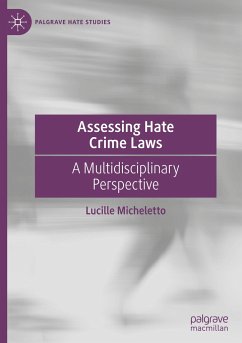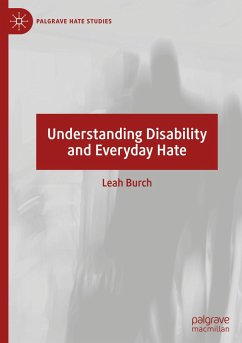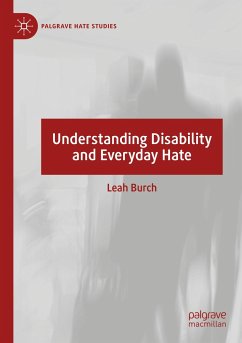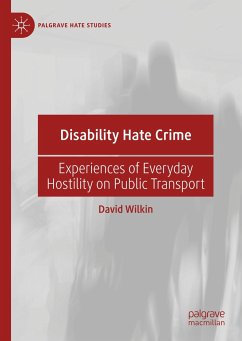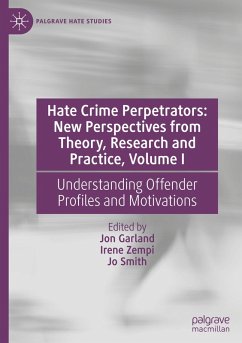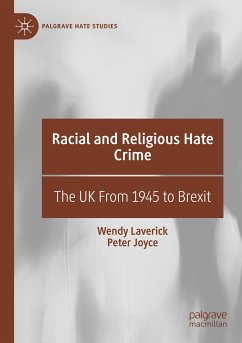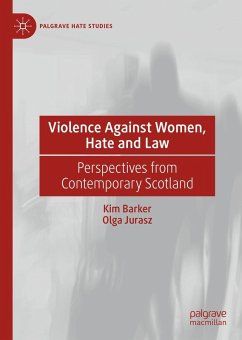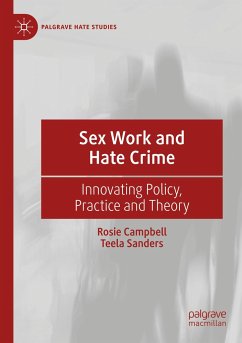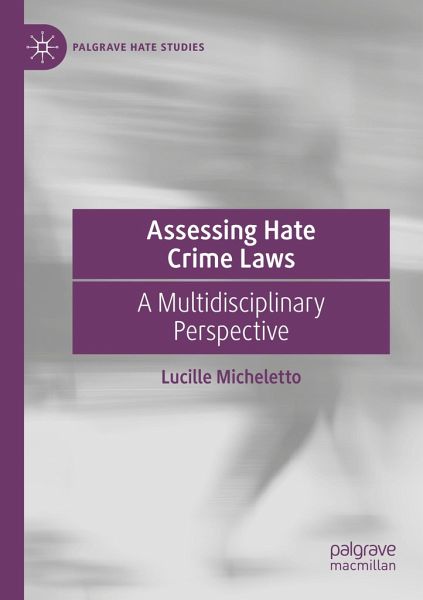
Assessing Hate Crime Laws
A Multidisciplinary Perspective
Versandkostenfrei!
Versandfertig in 6-10 Tagen
98,99 €
inkl. MwSt.
Weitere Ausgaben:

PAYBACK Punkte
49 °P sammeln!
This book offers a critical analysis of hate crime law using Italy as a case study. Employing a multidisciplinary approach, it develops an international framework for mapping hate crime laws onto the phenomenon of hate crime itself, allowing for better legislation to be drafted. It shows how this analytical tool may be used in practice by applying it to legislation in Italy, where Parliament recently dismissed a legislative proposal to extend hate crime law to sex, gender, sexual orientation, gender identity, and disability. The framework allows readers to critique the rationale behind hate cr...
This book offers a critical analysis of hate crime law using Italy as a case study. Employing a multidisciplinary approach, it develops an international framework for mapping hate crime laws onto the phenomenon of hate crime itself, allowing for better legislation to be drafted. It shows how this analytical tool may be used in practice by applying it to legislation in Italy, where Parliament recently dismissed a legislative proposal to extend hate crime law to sex, gender, sexual orientation, gender identity, and disability. The framework allows readers to critique the rationale behind hate crime laws and the effect of, or potential effect of, their implementation. This book ultimately seeks to answer to the question of how and whether States can legitimately introduce a harsher sentence for bias motivated crimes. It bridges interdisciplinary hate studies and more traditional legal analysis. It speaks to an international audience as well asto an audience with a specific interest in the Italian context.



